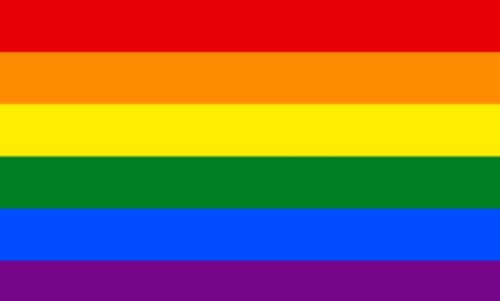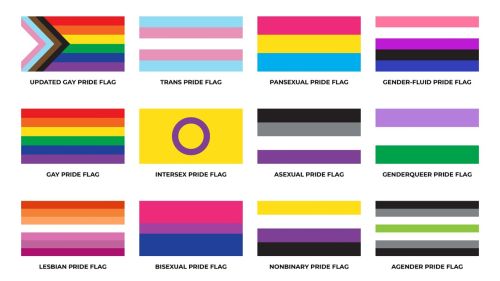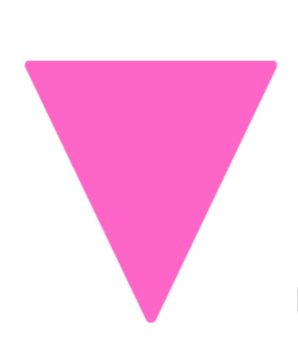What is Coming Out, and Why is It Important to Do It?
-
Published:14 October 2022
-
Updated:27 June 2025

Coming out is the process of openly and voluntarily admitting to being a member of a sexual or gender minority group. The word itself comes from the English word “coming out” (disclosure; exit). It is a reference to the phrase “coming out of the wardrobe” in which many LGBTQ+ people spend many years of their lives.
Coming Out in Simple Terms
In simple terms, coming out is the process when a person tells others about their sexual orientation or gender identity. It can be a very personal and intimate moment when a person shares their feelings with those around them. Coming out can happen in different situations and at different ages.
Why is It Worth Coming Out?
Coming out has many functions, including playing an important role in the global community. However, in this article, we have tried to show in what way coming out is important for the individual.
Acceptance by Others
Unfortunately, not all people view LGBTQ+ people positively, but sooner or later you will definitely find people around you who accept and value your relationships. This experience allows you to get a sense of closeness, belonging to a group, and the support that absolutely everyone needs.
Recognizing One's Own Identity
Recognition is exactly what the LGBTQ+ community commonly refers to as pride (hence the famous pride month). Recognition brings a stronger holistic identity of the individual, which can and should be built on. Note that identity here refers not only to a certain part of the personality (sexuality, gender) but to a holistic system. Because of one's own non-acceptance, subconsciousness often seems to “split,” leading to problems in one's relationships with others, in one's career, and in the development of mental disorders.
Reducing Internal Homophobia
This is a result of the previous points. By accepting oneself and being accepted by others, one stops treating oneself negatively over time, which helps one to live a fulfilling life and move forward.
Relief
Lying to people close to you about your private life causes a lot of internal tension. It builds up over time and causes even more questions from those around you. A successful coming out not only allows you to open up but also allows you to come to a sort of catharsis and relief.
It is important to remember that coming out does not mean that you have to speak out about your orientation from every possible source. It can be your friends and family - people you trust and feel safe with.
How to Come Out?
There is no universal way to come out correctly. No one but you understands the feelings and emotions you are experiencing and knows the environment you interact with. But there are a couple of recommendations that will help make the conversation easier.
- Don't rush. Give yourself time to think about what and how you will speak.
- Choose the right person who is more likely to accept what you say normally. Often in ordinary conversation, you can already understand how friendly a person is to the LGBT community.
- Gather more information. Read articles on this topic. Be prepared to answer questions that may arise from the person you decide to open up to.
- Choose a comfortable way to come out. You don't necessarily have to say it out loud. You can send a message or a letter.
- Give the person time. After you decide whom and how you will tell this, be prepared to wait while they process the new information. They may need time to accept it.
Don't stress yourself out in advance and don't think that absolutely everyone is negatively disposed towards the LGBT community. Some people may surprise you with their openness and acceptance. And others may already know other LGBT people and interact with them perfectly fine without any prejudice.
Where can You Find Support?
Remember, you are not alone and you can always count on support. Here are some sources where you can get it:
- Other LGBT people who can share their coming out experiences.
- Allies who are supportive of the LGBT community.
- Parents, friends, or close people.
- Specialized LGBT resources where you can freely and openly discuss the topic of coming out.
- Gay and heterosexual communities in your city.
- LGBT community center.
- LGBT organizations.
Of course, not all cities have gay communities or LGBT community centers. In this case, you can use the internet to find communities and support.
The Loudest Coming-Outs
The loudest coming-outs often attract significant attention from the public and media. They play an important role in the fight for the rights of the LGBTQ+ community and contribute to changing society's attitude towards sexual and gender minorities. Some of the loudest coming-outs in history include:
- Ellen DeGeneres: In 1997, actress and television host Ellen DeGeneres came out during an episode of her talk show "The Ellen DeGeneres Show." It was the first time an openly gay person spoke about their orientation on live television.
- Caitlyn Jenner: The father of Kylie and Kendall Jenner – Bruce Jenner came out as a transgender woman in 2015 and adopted the name Caitlyn. Her coming out was widely covered in the media and helped raise awareness about transgender issues.
- Ricky Martin: In 2010, pop singer Ricky Martin came out in his autobiography, admitting that he is gay. His open confession helped him break free from secrecy and became an important step in his personal and professional life.
- Kevin Spacey: In 2017, he openly announced his homosexuality. He posted on social media X (Twitter) that throughout his life he had relationships with both women and men.
- Jim Parsons: The star of the TV show "The Big Bang Theory" came out as gay in 2012. Interestingly, it did not affect his career. He is considered the highest-paid openly gay actor in Hollywood.
Forced Coming-Out (Outing)
Forced coming-out, also known as an outing, is the process of disclosing someone's sexual orientation or gender identity without their consent or desire. It can be done by someone else intending to cause harm or humiliate the person. Forced coming out can have serious negative consequences for the victim, including social isolation, discrimination, and violence.
Symbolism of Coming-Out
Coming out is often accompanied by various symbols that help express identity and support for the LGBTQ+ community. Some of the most common symbols of coming out include:
- Rainbow Flag: The rainbow flag is one of the most recognizable symbols of the LGBTQ+ community. It was created in 1978 and consists of six stripes of different colors, symbolizing diversity and inclusivity.

- Flags of Gender Minorities: In addition to the rainbow flag, there are also flags that represent various gender minorities, such as transgender, non-binary, and gender non-conforming individuals. These flags help express unique identities and support for these groups.

- Pink Triangle: The pink triangle was used during the Holocaust to mark gay men. It has now become a symbol of pride and solidarity for the LGBTQ+ community.

- Lambda: The symbolism draws from the meaning of lambda in science - complete energy exchange - this moment or period of time, testifying to absolute activity. The International Congress on Gay Rights in Edinburgh officially adopted this symbol as an icon of gay and lesbian rights in 1974.

- Transgender Symbol: The first version of the transgender symbol takes one circle with the symbols of Mars and Venus, as well as a third symbol that combines the two. Activist and writer Holly Boswell developed the symbol in 1993.

What's "coming out"? (https://www.plannedparenthood.org/learn/sexual-orientation/sexual-orientation/whats-coming-out). Accessed 23 Sep. 2024.
How do I come out? (https://www.plannedparenthood.org/learn/teens/lgbtq/coming-out/how-do-i-come-out). Accessed 23 Sep. 2024.
Coming out’/self-disclosure in LGBTQ+ adolescents and youth: International and Indian scenario - A narrative review of published studies in the last decade (2012-2022) (https://www.ncbi.nlm.nih.gov/pmc/articles/PMC10725212/), Indian J Psychiatry. 2023 Oct; 65(10): 1012–1024. Accessed 23 Sep. 2024.
A resource guide to coming out (https://assets2.hrc.org/files/assets/resources/resource_guide_april_2014.pdf). Accessed 23 Sep. 2024.
What is Outing and Why is it Harmful? (https://www.lgbtqandall.com/what-is-outing-and-why-is-it-harmful/), January 7, 2022. Accessed 23 Sep. 2024.
LGBTQ symbols (https://en.wikipedia.org/wiki/LGBTQ_symbols). Accessed 23 Sep. 2024.













.svg)
.svg)
